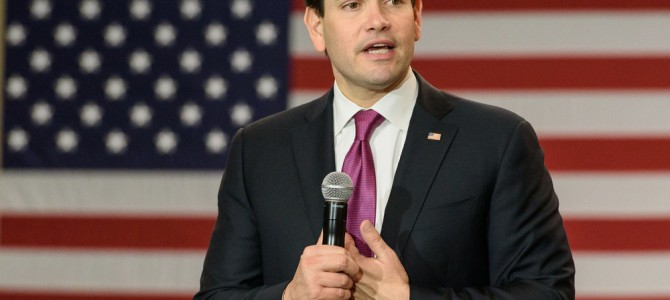
In a sign of the times, Sen. Marco Rubio, R-Florida, is circulating a memo aimed at emboldening Republicans to fight a measure that would distribute federal money to nonworking parents, worsening “poverty traps” by extending the new child allowance through the budget reconciliation bill. Rubio’s memo also criticizes the media for characterizing Democrats’ proposal as an “expanded child tax credit” when the money “goes to parents with zero tax liability, or who are simply not working at all.”
Rubio and Sen. Mike Lee, R-Utah, intend to introduce an amendment that would create a deficit-neutral fund that expands the child tax credit “while maintaining the essential connection between receiving the credit and working,” according to the memo.
Their colleagues may be less interested in voicing opposition. “Some Republicans are a bit reluctant to criticize the plan,” a senior GOP aide told The Federalist on Monday.
In the Aug. 6 memo to Republican Senate staffers, Rubio warns the “Biden Administration’s new government child benefit is the precursor to a universal basic income.” By extending the newly implemented allowance through 2025 in the reconciliation package, Rubio believes Democrats would all but ensure the program becomes permanent.
It’s a fight Republicans may be disinclined to take up on the heels of lockdowns that battered working families, and at a time conservative intellectuals are reconsidering the moral and political value of limited government ideology. But it’s a fight Rubio is well-positioned to wage.
Rubio and Lee pushed to ensure an expanded child tax credit made it into Republicans’ 2017 tax bill. Now, Rubio’s sounding the alarm that Democrats “aim to permanently turn the historically popular Child Tax Credit into welfare for nonworking parents, with no connection to sustainable paths out of poverty, such as work or marriage.”
“Before this law, parents had to have income in order to receive the Child Tax Credit,” reads Rubio’s memo. “Under the year-long expansion of the program, parents who have no earned income whatsoever will receive up to $3,000 per child and $3,600 per child under age 6 annually.”
“Parents don’t even have to file taxes to receive the credit and may simply sign up online and start receiving checks,” he added.
Rubio and Lee made a similar argument against a plan introduced by Sen. Mitt Romney, R-Utah, in February that “would provide $4,200 per year for every child up to the age of 6, as well as $3,000 per year for every child age 6 to 17” via monthly payments, as the Washington Post put it earlier this year. At the time, Rubio and Lee contended “an essential part of being pro-family is being pro-work.”
In his Friday memo, Rubio used Biden’s words against him, citing a 1988 column in which he argued the “broken down” welfare system “only parcels out welfare checks and does nothing to help the poor find productive jobs.” The Florida Republican also quoted Bill Clinton pledging in 1996 to “transform a broken system that traps too many people in a cycle of dependence to one that emphasizes work and independence.”
According to Rubio, “Democrats today have abandoned that consensus.” His memo listed four reasons the reconciliation proposal is “not pro-family,” including the removal of work requirements and marriage incentives, along with a failure to ensure the establishment of child-support orders and to ensure parents with histories of crime and substance abuse are put on a path to recovery.
Democrats have little reason to worry about Republicans opposing measures in the reconciliation bill, which is different from the bipartisan infrastructure package. The party won’t need enough votes to compromise on this three-year extension by seriously considering the Rubio-Lee amendment unless internal struggles emerge, which may at least partially explain Republican reluctance to weigh in.
Addressing The Federalist’s reporting on Monday, Zaid Jilani noted, “The Republicans being reluctant to oppose what is effectively a welfare program is a big change from the politics of the 1990’s.”
https://twitter.com/ZaidJilani/status/1424838865693679616?s=20
“If you think the welfare state is cool,” he tweeted, “that’s a positive development (and vice versa).”
The Rubio memo’s walk down memory lane underscores this point about Democrats, including the current president. But the very existence of the memo also suggests Republicans today are significantly less eager to pick battles over welfare and entitlements, wary of crumbling families and a difficult economy, having spent with abandon for four years under President Trump.
Given the cultural and financial magnitude of the proposed allowance, further silence could be very telling about the party’s stomach for stemming hefty entitlement growth and fighting the poverty traps conservatives have long decried.








